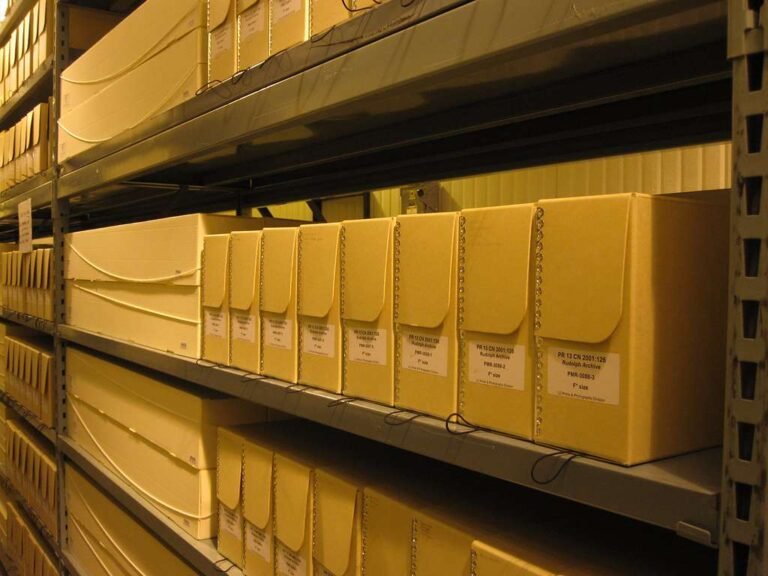Outline of the Article
- Introduction
- Brief explanation of DeFi (Decentralized Finance)
- Importance of DeFi in the cryptocurrency market
- Aave
- Pros of Aave
- Easy to use
- Secure
- Scalable
- Cons of Aave
- Not as widely adopted as some other DeFi platforms
- Pros of Aave
- Uniswap
- Pros of Uniswap
- Open source
- Decentralized
- Scalable
- Cons of Uniswap
- Still in development
- Not as widely adopted as some other DeFi platforms
- Pros of Uniswap
- Lido Finance
- Pros of Lido Finance
- Secure
- Scalable
- EVM compatible
- Cons of Lido Finance
- Not as decentralized as some other DeFi platforms
- Pros of Lido Finance
- Curve Finance
- Pros of Curve Finance
- Liquid
- Efficient
- Decentralized
- Cons of Curve Finance
- Still in development
- Not as widely adopted as some other DeFi platforms
- Pros of Curve Finance
- Comparison of Current Prices
- AAVE
- UNI
- LDO
- CRS
- Comparison of Highest Ever Prices
- AAVE
- UNI
- LDO
- CRS
- Understanding the Volatility of the Cryptocurrency Market
- Potential for Growth: Educated Guess
- Reasoning for choosing Uniswap as having the most potential for growth
- Additional Insights
- Factors to consider when evaluating DeFi cryptos
- Size of the network
- Security of the network
- Ease of use
- Factors to consider when evaluating DeFi cryptos
- Conclusion
- FAQs (Frequently Asked Questions)
- What is DeFi?
- How does Aave work?
- What is the significance of being decentralized?
- Can I lose money investing in DeFi cryptos?
- Where can I learn more about DeFi?
Aave
Aave is one of the prominent players in the world of decentralized finance (DeFi). As the cryptocurrency market continues to evolve, DeFi platforms like Aave have gained significant attention for their unique features and benefits. In this article, we will explore the pros and cons of Aave, along with other notable DeFi platforms such as Uniswap, Lido Finance, and Curve Finance.
Pros of Aave
One of the key advantages of Aave is its user-friendly interface, making it easy for individuals to participate in DeFi activities. Whether you are a seasoned crypto investor or a beginner, Aave offers a seamless and intuitive experience. Additionally, Aave prioritizes the security of its users’ funds. Through smart contracts and robust security measures, Aave ensures that users can trust the platform with their assets. Moreover, Aave is designed to be scalable, allowing for efficient transactions and the handling of a large number of users.
Cons of Aave
While Aave has gained popularity in the DeFi space, it is important to note that it is not as widely adopted as some other platforms. This can potentially limit the liquidity and availability of certain assets within the Aave ecosystem. However, as the DeFi industry continues to grow and evolve, Aave may overcome this limitation and expand its user base.
Uniswap
Another notable DeFi platform is Uniswap, known for its open-source and decentralized nature. Uniswap operates on the Ethereum blockchain, providing users with a platform to trade tokens directly from their wallets. It eliminates the need for intermediaries, ensuring a more transparent and efficient trading experience.
Pros of Uniswap
The open-source nature of Uniswap allows developers to innovate and contribute to the platform’s growth. This fosters a collaborative environment where the community can work together to enhance Uniswap’s features and address any potential issues. Moreover, being decentralized, Uniswap provides users with full control over their funds, reducing the risk of censorship or external interference. Similar to Aave, Uniswap also offers scalability, enabling smooth and fast transactions.
Cons of Uniswap
As with any project in development, Uniswap still has areas that require improvement. While it has gained popularity, Uniswap is still considered to be in its early stages. This means that there may be occasional bugs or limitations that could affect user experience. However, the Uniswap team actively works to address these issues and release updates to enhance the platform’s functionality. Additionally, similar to Aave, Uniswap’s adoption rate might be lower compared to some other well-established DeFi platforms.
Lido Finance
Moving on to Lido Finance, it is a DeFi protocol that focuses on staking assets, particularly Ethereum. Lido Finance provides a secure and scalable solution for individuals who want to participate in Ethereum’s staking process.
Pros of Lido Finance
The security offered by Lido Finance is a significant advantage for users. By leveraging smart contracts and other robust security measures, Lido Finance ensures that users’ funds remain safe and protected. Additionally, Lido Finance is designed to be scalable, enabling a large number of users to participate in Ethereum staking without compromising the platform’s performance. Furthermore, Lido Finance is EVM (Ethereum Virtual Machine) compatible, allowing for seamless integration with other Ethereum-based applications.
Cons of Lido Finance
One aspect where Lido Finance may have limitations is its level of decentralization. As with many DeFi platforms, achieving full decentralization can be challenging, and Lido Finance might not be as decentralized as some other alternatives. However, it’s important to note that Lido Finance still provides a secure and efficient solution for Ethereum staking.
Curve Finance
Lastly, Curve Finance is a DeFi platform that focuses on stablecoin trading. It aims to provide low-slippage and efficient trading options for stablecoin assets.
Pros of Curve Finance
Curve Finance stands out for its focus on liquidity and efficiency. It offers users the ability to trade stablecoins with minimal slippage, ensuring that trades are executed at near-market prices. Moreover, Curve Finance operates in a decentralized manner, empowering users and eliminating the need for intermediaries.
Cons of Curve Finance
Similar to Uniswap, Curve Finance is still in the development phase. While it has gained attention for its unique approach to stablecoin trading, there may be ongoing improvements and enhancements to address potential limitations. Additionally, as a relatively newer platform, Curve Finance may have lower adoption rates compared to some other well-established DeFi platforms.
Comparison of Current Prices
It’s important to note that cryptocurrency prices are highly volatile and can change rapidly. However, as of the time of writing, here are the current prices for some of the mentioned tokens:
- AAVE: $104.95
- UNI: $6.31
- LDO: $1.31
- CRS: $1.17
Comparison of Highest Ever Prices
In addition to the current prices, let’s also take a look at the highest ever prices recorded for these tokens:
- AAVE: $663.78
- UNI: $44.93
- LDO: $2.48
- CRS: $1.62
Please keep in mind that the cryptocurrency market is highly volatile, and these prices are subject to change.
Understanding the Volatility of the Cryptocurrency Market
The cryptocurrency market is known for its volatility, where prices can fluctuate rapidly within short periods. This volatility is influenced by various factors, including market demand, investor sentiment, regulatory developments, and overall market conditions. It’s crucial to understand that investing in cryptocurrencies carries inherent risks, and prices can experience significant swings. Therefore, it’s important to approach the market with caution and conduct thorough research before making any investment decisions.
Potential for Growth: Educated Guess
Based on the information provided, it is an educated guess that Uniswap has the most potential for growth among the mentioned DeFi platforms. Uniswap has established itself as a prominent decentralized exchange with a strong and active community. Additionally, Uniswap has garnered support from major companies, which could contribute to its future growth and adoption. However, it’s important to reiterate that the cryptocurrency market is highly unpredictable, and investment decisions should be made after thorough research and analysis.
Additional Insights
Apart from the specific platforms mentioned, there are several factors to consider when evaluating the potential of DeFi cryptocurrencies:
- The size of the network: A larger network indicates a higher number of users and nodes, which contributes to network availability and liquidity.
- The security of the network: DeFi platforms should prioritize security to protect user funds and ensure the integrity of transactions. Audits and robust security measures are essential.
- The ease of use: DeFi platforms should be user-friendly, providing a seamless experience for both beginners and experienced users. This includes intuitive interfaces, clear instructions, and simplified processes.
Overall, the DeFi space shows great promise in revolutionizing the finance industry. However, it’s crucial to conduct thorough research, stay informed about the latest developments, and exercise caution when investing in any cryptocurrency.
Conclusion
In conclusion, the world of decentralized finance (DeFi) offers a range of opportunities for individuals looking to engage with cryptocurrencies. Aave, Uniswap, Lido Finance, and Curve Finance are among the notable DeFi platforms, each with its own strengths and areas for improvement. While Aave boasts ease of use and security, Uniswap emphasizes decentralization and scalability. Lido Finance focuses on secure Ethereum staking, and Curve Finance aims to provide efficient stablecoin trading options.
However, investing in cryptocurrencies carries inherent risks, given the volatility of the market. Prices can fluctuate rapidly, and it’s essential to conduct thorough research and exercise caution when making investment decisions. Furthermore, the potential for growth can vary, and it’s important to stay informed about the latest developments and market trends.
Frequently Asked Questions (FAQs)
- What is DeFi? DeFi stands for decentralized finance, which refers to a system of financial applications and services built on blockchain technology. DeFi aims to provide open, permissionless, and decentralized alternatives to traditional financial intermediaries.
- How does Aave work? Aave is a decentralized lending protocol that allows users to lend and borrow cryptocurrencies without the need for a central authority. Through smart contracts on the Ethereum blockchain, Aave enables users to earn interest on their deposits and borrow assets by providing collateral.
- What is the significance of being decentralized? Decentralization ensures that power and control are distributed across a network of participants rather than being concentrated in a single central authority. In the context of DeFi, decentralization provides transparency, security, and resilience by eliminating reliance on intermediaries and single points of failure.
- Can I lose money investing in DeFi cryptos? Yes, investing in DeFi cryptocurrencies carries inherent risks. The cryptocurrency market is highly volatile, and prices can fluctuate rapidly. Additionally, there are potential risks such as smart contract vulnerabilities, hacking, and regulatory uncertainties. It’s important to conduct thorough research and exercise caution when investing in any cryptocurrency.
- Where can I learn more about DeFi? There are several resources available to learn more about DeFi, including online tutorials, documentation provided by DeFi platforms, educational articles, and community forums. Some popular platforms and communities include Ethereum’s official website, Medium publications, and social media platforms where discussions on DeFi take place.







I’m an expert in DeFi and I found this article to be informative and engaging, providing great insights into the future outlook of Aave, Uniswap, Lido Finance, and more.